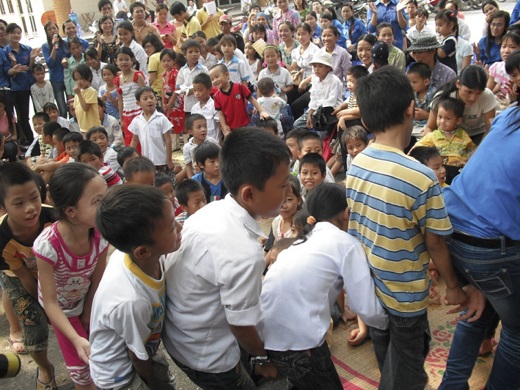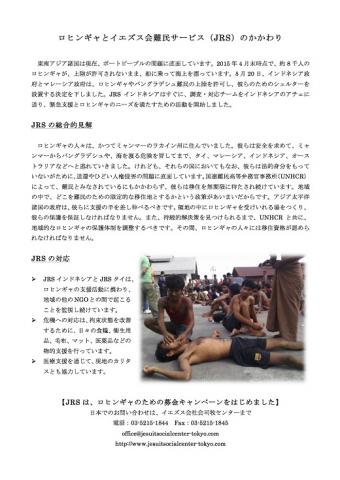
On his return to Tokyo, Fr Isamu Ando SJ, who heads the centre’s migrant desk, asked himself what could possibly be done in Japan.
“I felt a total black out in my head,” he said. “We Jesuits had held our province congregation at the beginning of May but there (was) no reference to migrants in this part of the world, much less to the Rohingyas.”
Inspiration came when he saw a story in the Japan Times on May 19. “[The title] caught my eye, ‘Rohingya children tricked into boarding trafficking boats, then held captive.’”
He read on … “A boy was shoved onto the wooden vessel with hundreds of other Rohingya Muslims. For days, the 14-year-old sat with his knees bent into his chest, pressed up against sweaty bodies in the cabin’s rancid heat. Women cradled coughing babies. The crew paced back and forth with belts and iron rods, striking anyone who dared to speak, stand up or even those who vomited from the nauseating stench and rolling waves.”
This should not be happening, he felt, and the Jesuits in Japan needed to do their part in helping to address this issue. He came up with the idea to cooperate with Jesuit Refugee Service (JRS) Asia Pacific to inform our Jesuit audiences about the crisis being faced by the Myanmar Rohingya. The centre’s staff supported his proposal and work began immediately to turn the idea into reality.

On June 1, in consultation with the Japan Jesuit Province headquarters, the Tokyo Jesuit Social Center launched a campaign for the Rohingya within the Province. Information was sent to about 50 Jesuit communities and institutions, hoping for a multiplication effect. Fr Ando says that days later, because there was a general lack of awareness of the plight of the Rohingya, several Jesuits became curious about who the Rohingya were and why they were taking such a dangerous risk on the sea. They started to talk about it with others. The Japanese media had also begun increasingly reporting on the subject.
Fr Ando shares a photo showing the happiness of the children of foreign migrant workers when they are raised in a free environment. He says, “Rohingya children, the same age, could also enjoy their childhood if they did not have to flee their home. Because they are desperate to escape the conditions they live in in their home country, human traffickers are able to trick Rohingya into boarding trafficking boats and then hold them captives.”






